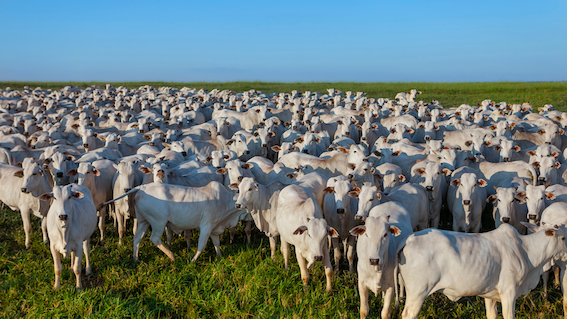While the pressure on EU negotiators to close the Mercosur deal is increasing due to the perfect storm affecting EU carmakers flooded by Chinese producers, this agreement remains antagonistic to EU agriculture interests and would offset most — if not all — EU producers’ efforts on the difficult path of climate transition.
It would not only undermine major EU agricultural value chains, but also, as it stands, the policy coherence and the alignment of EU policies, as requested in different recent reports. A dedicated fund would be far from enough to compensate for its economic impacts considering the firepower of the Mercosur agribusiness sector, not mentioning the detrimental effects on the Amazon, the planet’s lungs.
Therefore, Farm Europe regrets yesterday’s renewed commitment of Commissioner Šefčovič to move forward in the talks with Mercosur and considers that the conditions are not met for including agriculture in this deal. Free trade agreements can offer important opportunities for the EU economy, but only if and when the principles of reciprocity are duly taken into account, in particular for EU agriculture. Those conditions are not meet and far from being achieved in the Mercosur negotiations.
Deforestation
- The European Union has seen a reduction of more than 10 million hectares in its agricultural area over the last three decades (equivalent to two-thirds of Poland’s agricultural area). Forests in the EU have increased by 12 million hectares.
- Meanwhile, Brazil lost 90Mha of forests. And the EU has become the second-largest importer of tropical deforestation and associated emissions (16% of tropical deforestation linked to international trade). Over the last 30 years, EU imports are estimated to have caused more than 11 million hectares of deforestation.
Pesticides
- The use of hazardous pesticides has declined by more than 25% in the EU in less than 10 years.
- In the Mercosur area, the increase in areas cultivated with soy, maize, and cane has led to a significant increase in the use of pesticides. In Brazil alone, the volume of pesticides sold quadrupled from 2000 to 2020. But it is not just about quantity: 27% of the products used in Brazil in 2020 were banned in the EU. Chlorothalonil, a fungicide, was banned in the EU since 2019, and an insecticide like Novaluron was banned in 2012. These are just some examples.
Hormones
- Since the 1980s, the European Union established a ban on using growth-hormones in cattle ; this ban has been reinforced several times in the ‘90s and in 2006 with the exclusion of antibiotics used a growth promoters.
- In a recently published audit report on controls on residues of active substances, pesticides and contaminants in animal and animal products, the European Commission recognized the need to suspend imports of bovines from Brazil due to the lack of guarantees on hormone use. Keeping in mind that even if the imports from the Mercosur area of meat where production involves growth hormones for cattle are forbidden, this constraint is partly overcome through the use of certain antibiotics as growth promoters.
Therefore, rather than opening wide the doors of the European Union to the agricultural giants of Latin America, at a time of difficult challenges for EU producers, it is a matter of urgency:
- To be credible in the fight against deforestation with a simple and solid implementation of the EU regulation on deforestation for standards and high-risk countries, while avoiding administrative burdens for low or zero-risk countries, particularly for EU producers ;
- To protect our agriculture against unfair competition, not only when it comes to consumer safety, but also in terms of EU environmental standards, with full reciprocity on production norms ;
- And, of course, to shape a new vision for EU agriculture and food, matching a real ambition for the “Made in Europe”.
